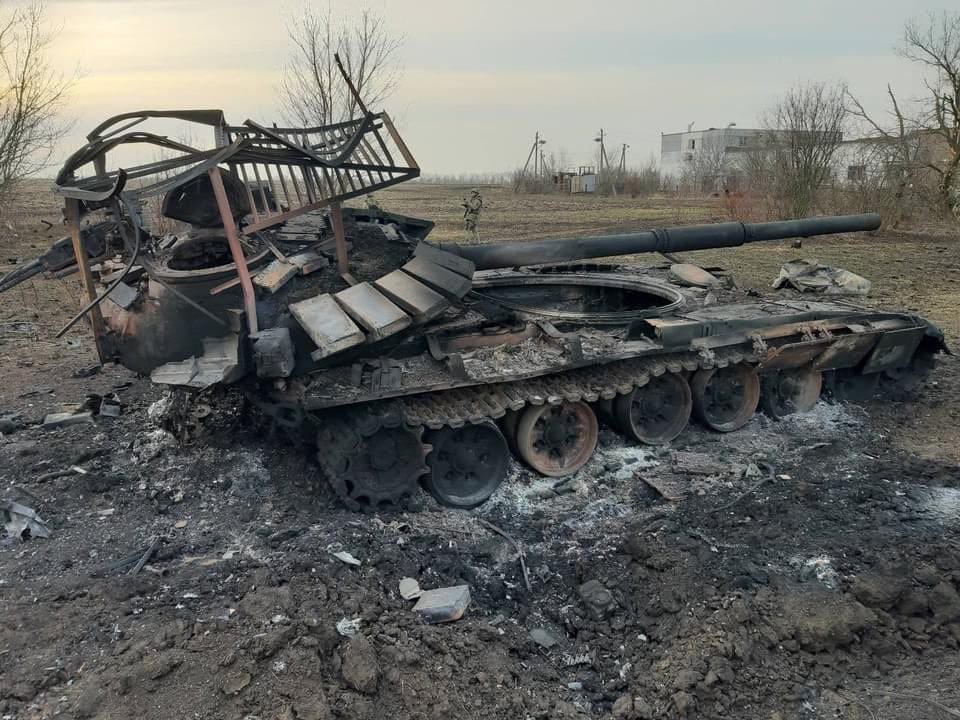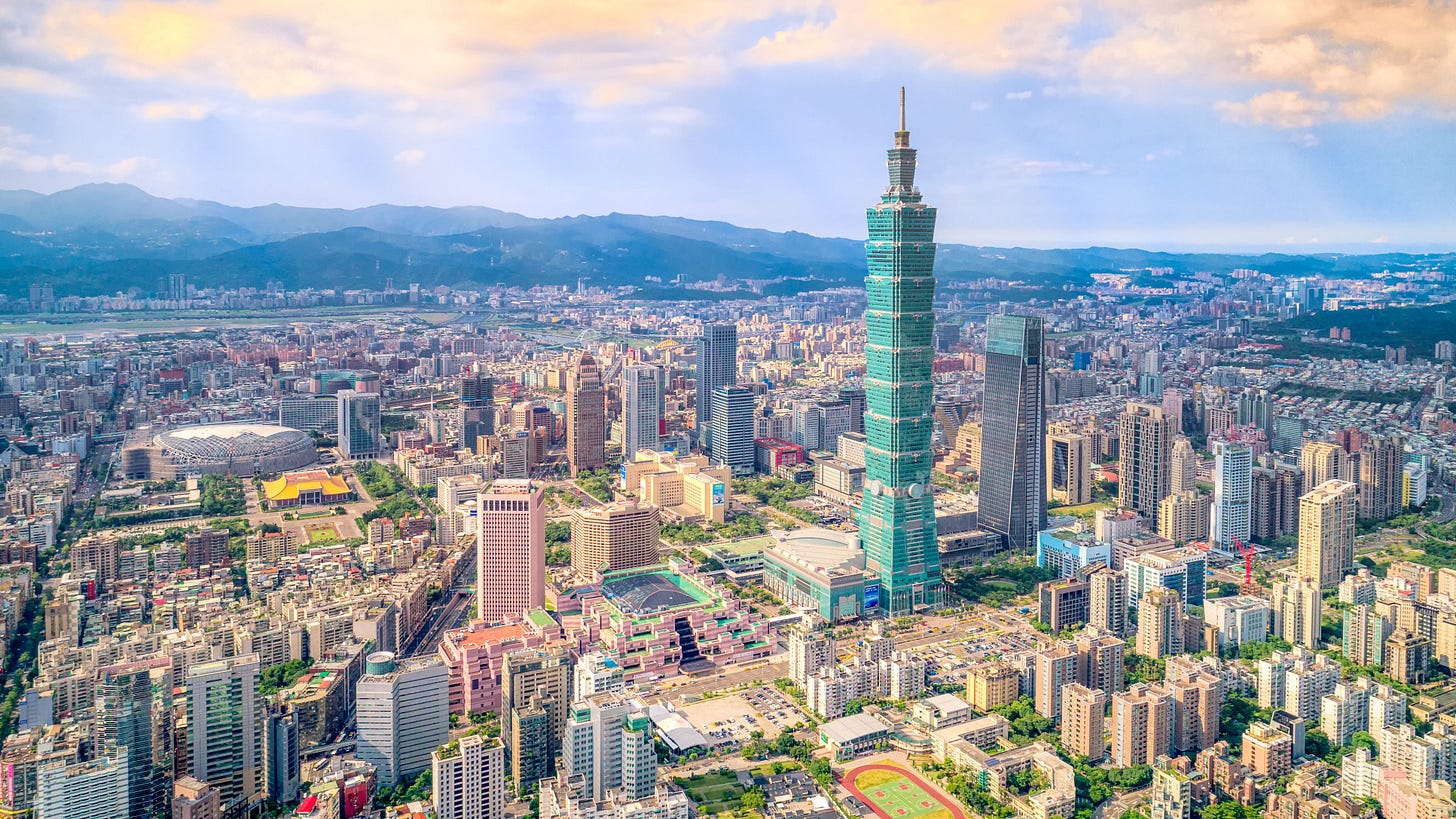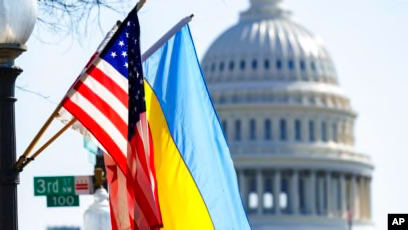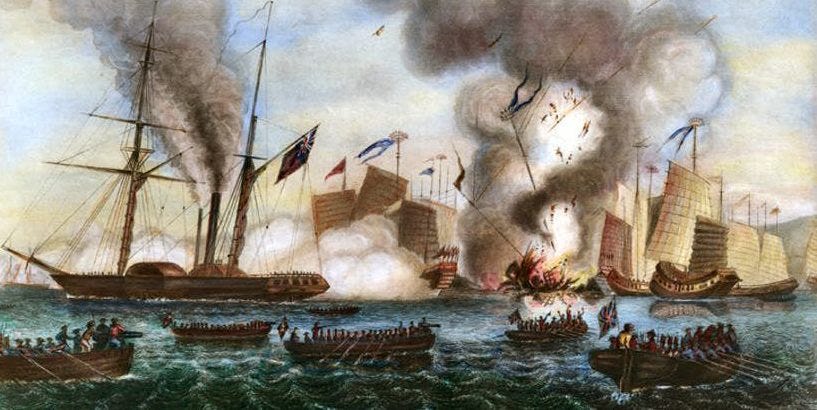When the agonies of war meet the fantasies that feed culture, what comes out the other side? As tragedy unfolds in Ukraine, like many I’ve been trying to understand the complex ways in which cultural psychologies clash, and how this leads to shifts in the world order.
As well as crossing a geopolitical Rubicon, I believe we’re living through what I’ve called a ‘Breach event’. Breach is what happens when an alternative narrative birthed by our collective imagination (usually online) bursts into the physical world and permanently alters its foundations.
As Andrew Sullivan points out in The Strange Rebirth of Imperial Russia, Putin is influenced by a mythic nationalist fantasy, dreamed up by post-truth Russian intellectuals to cope with the fall of the Soviet Union. That fantasy has now breached into the real world with awful consequences. But as with all Breach events, when imaginal dreaming meets physicality, things rarely go to plan.
It’s a time of rude awakenings. For Putin, for the Western liberal order and for China. I’ve spent the last month or so trying to understand what exactly we’re awakening from and into, and how the Western psyche is going to adapt to its new reality.
In the process, I’ve been drawn to the work of N.S. Lyons, who has a popular Substack called The Upheaval. N.S isn’t his real name; it’s the pen name of an analyst and writer working in the broader US foreign policy establishment. He’s an expert on China, and writes brilliantly on the deeper sociological and mythic dynamics of Western culture.
This piece is built around an interview with him, which you’ll find further down. If you’re familiar with his work, you might like to skip straight to it. If not, I’ve written a short summary of his key ideas to give you some further context.
An Introduction to N.S. Lyons
I first came across Lyons through his essay The Reality War. In it, he explores what Mary Harrington has called the ‘Luxury Gnosticism’ of Western elites. This is the movement to ‘escape the prison of nature’ and live in virtual worlds built by narrative, identity politics and theory. In these worlds, theory can, at long last, be truer than reality. He also explores the pushback, perhaps best expressed through the meme ‘touch grass’. The message is simple: unplug, go outside and touch some grass to reconnect with reality.
In a piece released a few months ago, Reality Honks Back, N.S. writes about the Canadian Trucker protests. He explores a growing class war not just in Canada but in many Western democracies, framing it as a split between the Virtuals (as described above) and Physicals. Unlike the Virtuals, the Physicals tend to be connected to a particular place, and often do manual jobs. They drive the trucks, build the bridges and maintain the logistics of society that make life for the Virtuals possible. His framing is not dissimilar to David Goodheart’s ‘Somewheres and Anywheres’, but I find it more useful as it points not just to a class difference in how people relate to place, but to our physical bodies.
In the more recent Ukraine and the End of Dreams, he examines the invasion as a moment of rude awakening for Western democracies and Putin alike. For Western liberal democracies, it’s a jolt from the virtual dream world into the undeniable realness of geopolitical truths we dreamed had gone away.
I wanted to connect with N.S. as I think he’s particularly talented at weaving geopolitics and cultural psychology together. Geopolitically I was interested in China’s response to the invasion, as this is an area we haven’t much covered on the channel. On the cultural psychology side, I was curious to hear him expand on what he thinks the invasion means for ‘Luxury Gnosticism’ and class dynamics in the West.
N.S. writes anonymously, so we’re putting this interview out exclusively on Substack. This is something we’re going to be doing with other Substack writers we admire moving forward, so let us know what you think of this format in the comments. In a laudable act of cultural generosity, I have kept the American spelling in his answers.
Alexander Beiner: You're an expert on China, and many of us are wondering what their game-plan is now. Do you think the Chinese government sees the invasion of Ukraine and the Western response net positive or net negative? And as you watch media coverage speculating on their current strategy, what do you think we’re not getting about China in the West?
N.S. Lyons: It’s hard to know what the Chinese leadership thinks, because it’s hard to know what information they are receiving. But I suspect that overall Xi Jinping and most of China’s leadership sees what’s happening in Ukraine as a huge headache that could not have come at a worse time.
This is not how the China-Russia alliance was supposed to go down, at all. Russia was supposed to be there to support China during any invasion of Taiwan by being a formidable, menacing presence in Europe, while helping to break the West’s global economic and ideological stranglehold. Instead Putin miscalculated and prematurely blew it.
Now maybe in some alternative universe the Russian war machine’s lightning attack to depose the Ukrainian government succeeded in a matter of days, already strained European unity collapsed, and in a single blow Putin’s bold masterstroke broke the back of the “liberal international order” forever. This seems to be what Putin assumed would happen. But instead Russia’s military has been revealed to be catastrophically incompetent paper tiger, the West has never been more unified and geared up for confrontation, and Russia is being economically strangled by sanctions while China’s ability to help is still limited. China is now more isolated than ever, and at risk of taking an economic blow itself. From Beijing’s perspective this is all a disaster.
There’s a lot of talk right now about China being happy about Russia being pushed into its arms and turning into a dependent Chinese client state. This is way off base. First of all, Russia was already firmly in its arms. And while Beijing certainly appreciates client states, the last thing China wants is a weak, dependent Russia hanging onto its leg and begging for handouts. This was supposed to be a de-facto great-power alliance, in which even if Russia was economically minor, it would be a strong military asset for China, helping to tip the global “correlation of forces” (as the Marxist-Leninists put it) in China’s favor. It’s important to understand that to Leninists (which Xi very much is) there is no worse sin than weakness. This is now the real sin tarnishing Putin in Beijing’s eyes; even if he pulls through in Ukraine, it will be years before Russia is in any position to fight again in any way that could be helpful to China. Meanwhile now even the Germans are rearming, and once-pacifist Japan is talking about hosting US nuclear weapons and actively defending Taiwan.
Xi was also really hoping this would be a year of “stability” (as he has repeatedly ordered the CCP Politburo to ensure) because he needs to be “reelected” for a third term at the 20th Party Congress this fall, and the Chinese economy was already doing very poorly. Instead every elite in China is now going to be eyeing Xi and questioning his decision-making, wondering how similar to Putin he really is, and whether he’s weaker than he looks.
Any long-term silver linings to this conflict for China, such as the slow weakening of the dollar as the world’s reserve currency, or all the various disasters that could flow in time from the inevitable Western triumphalism and hubris that’s coming, do not outweigh all of the mess that’s been created for Xi and for China in the here and now.
AB: I've read a few pieces asking whether Taiwan is the next Ukraine. What are your thoughts on this? Do you think the West's response would be different to an invasion of Taiwan now compared to three months ago?
N.S.: Chinese D-Day on the beaches of Taiwan has likely now been delayed.
Xi has been very explicit about achieving the reunification of Taiwan before 2035, but the date for this goal has probably now had to be pushed back toward the end of that range.
Again, the culprit is Russia’s disastrous military performance in Ukraine, including its many logistical and leadership failures. Corruption, mismanagement by a top-heavy officer corps, and inexperienced forces seem to have severely limited the Russian military’s ability to successfully conduct joint operations. These are the exact same problems that plague the PLA, which is notably far less experienced than the Russians. Meanwhile the devastating losses inflicted on Russian armor and aircraft by modern portable, cheap, and easy to use anti-tank and anti-aircraft weapons has demonstrated how advantageous it now is to be the defender, and just how difficult it would be for the PLA to take Taiwan. Ukraine is basically a flat piece of land, ideal for mechanized warfare. Taiwan is an island, covered in mountains and jungles, and quickly being filled to the brim with the same kind of weapons – not to mention the much higher chance of US and allied forces themselves intervening militarily, in addition to leveraging economic warfare.
Xi is going to have little choice but to pause and reassess what the real state of the PLA and its capabilities really are, so he doesn’t get blindsided by reality like Putin did. In the Chinese political system, Xi absolutely cannot afford to lose a war, any war, whether in Taiwan or elsewhere; it can’t even end up in a stalemate – his head would roll for it. So he has good reason to be risk adverse. In fact he’s liable to conclude that the best course of action is just to wait and hope – with some good reason – that by the 2030s Western power will have largely crumbled on its own amid economic and political turmoil, allowing Taiwan to be taken without a fight. Because the military option just looks like a worse and worse bet.
AB: I wanted to explore another duality - that of individualism vs collectivism. The idea that the US and Europe are more individualist while China is more collectivist seems like a gross oversimplification, but this general divide across different cultures does seem to be somewhat true (I’m thinking in particular of Joseph Henrich's research into WEIRD psychology). Do you think this is a useful frame for making sense of China and its relationship to the West? To what extent is Chinese culture and politics truly collectivist in its outlook?
N.S.: I think this idea may confuse more than it reveals in this case. Chinese culture today is not collectivist. It used to be collectivist, but that was all smashed by the trauma of communism. I wouldn’t say it is especially individualistic either, but China is today a very low trust society, which is the case in almost every country that has endured communism. People look out for their families, and then themselves, above all else, and see their agency to do more than that as limited.
The Chinese also, in my mind, tend to be among the most commercial and entrepreneurial people on the planet – making them rather similar to Americans. Plus the younger generation has also become far, far more individualistic than their parents’ as modern Western culture has begun spread to China just like it has around the world. This really worries the leadership of the CCP – after all they want their country to be educated, industrialized, and rich, but if they become Westernized then maybe they’ll want democracy next… I don’t want to overemphasize how similar China is to the West, though, as in some ways it’s very different. The Chinese sense of national identity (indeed nationalism) is very strong, for example; there is no wavering there about China being an exceptional nation with a manifest destiny to fulfill.
AB: As you’ve pointed to, the invasion has ripped the elites and the middle class in many Western countries from a retreat into the simulated words of identity politics and narrative games into a confrontation with physical reality (at least partially and temporarily). We’re watching people suffering, dying, and being incredibly heroic in defence of a place and physical land. It's also a visceral, embodied defence of the values of liberal democracy (or at least is being symbolically presented as such). Are we seeing the ultimate expression of the idea of ‘touch grass’ - coming back to a sense of physical reality from the virtual world?
N.S.: On the one hand, yes, certainly. As I wrote in “Ukraine and the End of Dreams”, the return of war to Europe was a big shock to many, with the re-intrusion of reality into this long dream that global liberal internationalism could prevent conflict. And I do think we will continue to see a reawakening to some of the hard realities of geopolitics, at least in previously very naïve Europe.
But, on the other hand, you will have to pull identity politics from the collective West’s cold, dead, irradiated hands before we give that up.
Just a few weeks into this war and it’s now clear that the gravity of our narcissistic culture war is so strong that even the risk of WWIII and potential nuclear annihilation can’t break its grip – everything is pulled back in and reframed by the narratives we are most obsessed with.
The narrative conflict around liberalism and nationalism is a good example. Liberal internationalists have leaped on the war as a means to claim narrative victory and smear nationalists, populists, realists, and anti-interventionist conservatives as not only definitively wrong about everything, but as inherently pro-Putin and dangerous to the world. But of course the Ukrainians fighting and dying to save their country are nationalists.
Almost uniformly, they speak passionately about fighting to defend their land, their homes, and their families – not the EU. Such as this young former IT specialist, who explained to the New York Times that he's decided to take up arms because as a Ukrainian the Russian invasion threatens "everything I love," and that he "doesn't have any choice, this is my home." That is classic national conservatism – love of one’s home, and the desire to preserve and protect it – in one line. Meanwhile they are fighting off Putin’s supranational imperialist dream of gobbling them up into a multi-state Russian empire.
But such realities are steamrolled by the narrative tidal wave as everything gets reframed as needed, until we are at the point where Nancy Pelosi – a liberal supranationalist – is shouting “Slava Ukraini!” on the US Senate floor without any sense of irony.
AB: In ‘Reality Honks Back’ you set up a duality of 'virtuals' vs 'physicals'. I thought this was an elegant frame to describe different socio-economic and cultural memetic tribes, but what I especially like about it is that it seems to point to something much deeper in many of our psyches in the West that we need to find a way to integrate: our disconnection from our bodies, the land and our own mortality.
I think a sense of being connected to the land and proud of where you’re from is one way out of the meaning crisis, and might actually be necessary for a sense of psychological safety and grounding. In Europe, it was rejected as dangerous after Nazism, and unnecessary after the rise of neoliberalism and pluralistic world-centrism. Now, we see it expressed on opposite extremes of the cultural divide.
I sometimes joke that hippies and Nazis have more in common than they think, as they're some of the only subcultures who identify with defending the land and honouring its ancestral lineages. The divide between virtual and physical seems increasingly untenable, so I'm curious what you think a healthy synthesis looks like. Have you seen it anywhere?
N.S.: Well, I do think a synthesis – or at least ceasefire – is possible. Certainly at an individual level, I myself must admit that I very much fit in the virtual category: I live in a city and type away on my laptop for a living, and have the soft writer’s hands to prove it. And yet, perhaps because I grew up in a rural state, I am at least politically and philosophically far more understanding of and sympathetic to the physicals.
Really in the modern world it is inevitable that both classes are going to exist and have to find a way to live with each other.
The world can’t function without the physicals, while the virtuals do provide many good things – art, for example, or theoretical physics. The problem is when we have the virtuals not only losing contact with reality entirely, but achieving a position of such power as to then try to enforce their flawed vision of the world and humanity back on the rest of the population. I’m not really sure what the answer is – I think this is one of the greatest political challenges of our era. How do you reunite these two groups?
From a narrow public policy perspective, there are some steps that might help a bit. Embracing the remote work revolution may actually help to some degree, for example, if it can help break the geographic divide and redistribute city-dwellers out into the rural hinterlands, where they could mix more easily with the physicals and gain a little empathy. But overall I think that kind of thing won’t be sufficient. Ultimately reunification, and the end to this particular class war, will require some form of re-democratization, in the sense of breaking managerial technocracy’s oligarchic hold over societies. And currently we’re moving in the opposite direction.
Frankly I suspect the only sure way might be through some crisis so significant that it would slam the virtuals back into reality as their lifestyles and luxury beliefs became unsustainable. Perhaps this war in Europe could move us in that direction, if the economic or military fallout is bad enough. But it’s by no means guaranteed that even that would be sufficient at this point.
Reflection and Summary
As I reflected on this conversation, I kept remembering a (possibly apocryphal) anecdote from Ian Morris’ book ‘Why the West Rules - For Now’. I read the book when it came out in 2011 and largely enjoyed it. It’s similar to 'Guns, Germs and Steel’ and examines the cultural development of China and the West. Morris ultimately makes the argument that it was a combination of good fortune and environmental factors that saw the West industrialise first and dominate the East. Early in the book, he discusses the First Opium War, asking:
“Why did British boats shoot their way up the Yangtze in 1842, rather than Chinese ones up the Thames?”
He goes on to recount a story of a Chinese officer standing on the banks of the Yangtze watching this happen. A subordinate asks him why they’re being defeated so badly, to which the officer replies:
“Because they play chess, and we play Go.”
Chess runs on brutal logic and winner-take-all outcomes. Go selects for elegance and balance. Go games have winners, but a really great game is defined by how beautifully balanced it was. A process, rather than a ruthless charge toward a goal.
As N.S. touched on, it’s not that helpful to use neat aphorisms to understand the whole national consciousness of China, especially 180 years after the fact. However, the anecdote points to something more universal: the link between cultural cognition and geopolitical shifts.
The cultural games we are playing, both implicitly and explicitly, determine our geopolitics. They are, as a Taoist might say, mutually arising. But they are also distinct phenomena. Presenting a ‘both and neither’ paradox like this can come across like a cop out, or a retreat into a woolly grey area.
However, if we play Go with it rather than chess, we can use this ‘both and neither’ approach to practice a kind of aesthetic aikido in the face of complexity. It can help us embrace and taste more aspects of a crisis rather than trying to find answers, something Jonathan Rowson explored in his essay Tasting the Pickle. It’s a way of enhancing our psychological and cognitive flexibility to be able to move with the weirdness of the times, rather than hide from it.
Without flexibility we often fall into narrow ideological frames, or go the other way into ‘meta-bypassing’. This is a concept I’ve been exploring recently as I’ve been reading the responses to the war coming from some corners of my social feeds.
Spiritual bypassing is when we use spiritual ideas and practices to avoid our pain. Manifesting and OM’ing away from our inner darkness. Meta-bypassing is when we hide inside The Big Picture to avoid our pain and uncertainty.
It’s the exact opposite move that I think is needed. Pain, more than anything, is what feels most relevant to me right now. The pain of the Ukrainian people, the pain of all the Russians who’ve fleeing a dictatorship, and the pain of our cultural wounds. Pain is real. If we let it, it can bring us back to our bodies and our compassion. If there is a synthesis and healing possible in our national wars, class wars and culture wars, maybe its seeds are held in this pain.
Subscribe to get access to over 100 member films and exclusive content. If you’d like to join our regular live events and community calls, you can find out more here.













Your summation about feeling the pain really resonants for me. Typical human nature (in Western culture anyway) is about escaping emotional pain – in myriad ways.
As an emotions therapist, I see people burying their pain as it is too intense to fully experience the awareness and release of it. But as you indicate, if we can learn how to experience pain, "it can bring us back to our bodies and our compassion."
Of course, feeling our feelings – especially when they're painful – is a spiritual process that nurtures relationship with our deep Inner Knowing. It is hard but from this place springs all the good stuff – love, peace, kindness to serve the evolution of consciousness leading to personal and social transformation.
Right on: "... seeds are held in this pain."
I discovered NS a while back and have really enjoyed his writings, glad to see him interviewed here...his 'black pill' essay on why Wokeism is just getting started was also a real reality check for me...some of the best bloggers such as NS Lyon and Doomberg and in a previous life Mencius Moldbug are written under a nom de plume